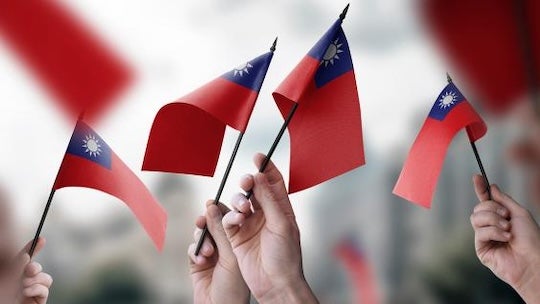Experts on Northeast Asia’s energy security, policy and environmental efforts discussed the January Taiwan election on the latest podcast episode from Rice University’s Baker Institute for Public Policy.
Taiwanese voters elected William Lai, a supporter of Taiwanese sovereignty, as their next president. This has strained relations between Taiwan and China with Beijing increasing pressure on the self-governed island, explained David Satterfield, director of the Baker Institute, former U.S. ambassador and host of the Baker Briefing.
Steven Lewis, C.V. Starr Transnational China Fellow at the Baker Institute, spoke of political identity in Taiwan:
“Think about Taiwan as basically 40 years ago they left martial law and they began to slowly introduce democratic reforms. And the late ’90s you get first native Taiwanese, they’re moving away from one party rule. So what that means is basically two-thirds of the population or so have actually no experience with martial law, no experience with KMT (Kuomintang) rule, no experience of this constant overwhelming threat from mainland China.
“And we can also see this very clearly in the identifications of Taiwanese. Thirty years ago, you asked Taiwanese people, ‘Do you see yourself as Taiwanese, Chinese or both?’ Well, 30 years ago, Taiwanese basically said … only a very small percentage said they saw themselves as only Taiwanese, but two-thirds said they saw themselves as Taiwanese and Chinese. Today, nearly two-thirds see themselves as Taiwanese only.”
Gabriel Collins, the Baker Botts Fellow in Energy and Environmental Regulatory Affairs, on the economy:
“If we look at the last 30 years, really dating from the Taiwan crisis in 1996, for the vast majority of that period you had this phenomenal economic growth that fostered the creation of this military capability tiger.
“Most of the narrative within Chinese society — and I think frankly that the party was trying to promote — is ‘Look at our growth now. We are great today, we will be even better tomorrow, and we will overwhelm all of our adversaries over the last few years.’ And these forces were in place before the pandemic, but it really accelerated it where you see economic growth starting to be less and less a source of claimed legitimacy and securitization becoming a bigger source of legitimacy, and coupling this with a much more isolationist approach to the world and the impacts that has when it reverberates back into internal Chinese discourse in society sets up some frankly disturbing possibilities with respect to Taiwan.”
One crucial factor in Taiwan’s sovereignty is energy independence, and with the shift away from nuclear power, Taiwan is at risk of an energy deficit.
Shih Yu (Elsie) Hung, research manager for the Baker Institute’s Center for Energy Studies, discussed Taiwan’s energy security risks:
“The vulnerability is exacerbated by the nuclear phaseout. Because Taiwan is an island, we import about 97% of the energy needs and most of which were fossil fuels. We import a lot of coal, a lot of natural gas in the form of liquefied natural gas or LNG. Even through diverse sources from Qatar, from Australia, from Indonesia, we are still heavily impacted by any kind of global market fluctuations or geopolitical tensions.
“The Russian-Ukraine war in 2022 impacted Taiwan as well. Because Taiwan is really limited in scale compared to the rest of the world, Taiwan maintained a state-owned electricity company and oil company that they set the electricity tariff and the fuel prices. They partially absorbed the impact by the war, but it’s still ultimately impacted end customers. So Taiwan’s energy sector is very much vulnerable, and phasing out nuclear just exacerbated the situation.”
To schedule an interview with Lewis, Collins or Hung, or for more information, contact Avery Franklin, media relations specialist at Rice, at averyrf@rice.edu or 713-348-6327.

